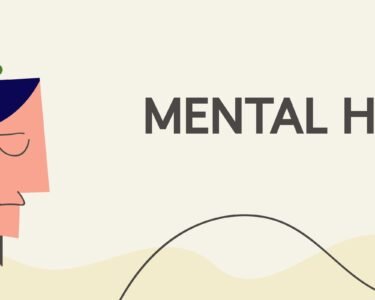Your kidneys are two bean-shaped organs that work around the clock to filter waste, regulate blood pressure, balance fluids, and produce hormones essential for red blood cell production. Despite playing such a vital role in your overall health, the kidneys often suffer silently. Many people do not realize they’re damaging these organs with small, daily habits — until symptoms surface and some degree of damage has already occurred.
Let’s take a look at some of the most common everyday habits that can negatively impact your kidney health, early warning signs you shouldn’t ignore, and practical tips for prevention.
1. Not Drinking Enough Water
Staying well-hydrated helps your kidneys remove waste from the blood through urine. When you don’t drink enough fluids, toxins can build up and overwork your kidneys. Chronic dehydration is a major contributor to the formation of kidney stones and can, over time, impair kidney function.
Prevention Tip: Aim to drink 6–8 glasses of water daily, more if you’re active or live in a hot climate. Monitor the color of your urine — it should be light yellow or almost clear.
2. Excessive Salt Intake
A high-sodium diet forces your kidneys to work harder to eliminate the extra salt. Over time, this can lead to high blood pressure, a leading cause of kidney damage. Processed foods, packaged snacks, and restaurant meals often contain hidden salt.
Prevention Tip: Reduce your intake of processed foods, check labels for sodium content, and cook meals at home using herbs and spices instead of salt.
3. Overuse of Painkillers
Frequent use of nonsteroidal anti-inflammatory drugs (NSAIDs) like ibuprofen or aspirin can reduce blood flow to the kidneys, especially in people with pre-existing conditions. Long-term or high-dose use can cause chronic kidney issues.
Prevention Tip: Use painkillers only when necessary and under a doctor’s guidance. If you have chronic pain, explore alternative treatments like physiotherapy, acupuncture, or lifestyle changes.
4. Eating Too Much Protein
While protein is essential for the body, excessive intake — especially from red meat — can overburden the kidneys. This is especially risky for people with existing kidney issues or those unaware of early-stage kidney disease.
Prevention Tip: Maintain a balanced diet with moderate protein intake. Incorporate plant-based protein sources like lentils, tofu, and beans.
5. Holding In Urine Frequently
Ignoring the urge to urinate for extended periods can put pressure on the kidneys and urinary tract, potentially leading to infections and kidney complications.
Prevention Tip: Listen to your body. Don’t delay bathroom visits unnecessarily, and maintain proper hygiene to prevent urinary tract infections.
6. Poor Blood Sugar Control
Diabetes is one of the top causes of kidney failure. High blood sugar can damage the tiny blood vessels in the kidneys, reducing their ability to filter waste efficiently.
Prevention Tip: If you’re diabetic or prediabetic, manage your blood sugar levels through medication, regular exercise, and a healthy diet. Regular health checkups are essential.
7. Sleeping Too Little or Too Much
Kidney function is closely tied to your sleep cycle. Chronic sleep deprivation can disrupt kidney regulation and contribute to high blood pressure and obesity — both risk factors for kidney disease.
Prevention Tip: Aim for 7–8 hours of sleep each night. Maintain a regular sleep schedule and avoid screen time right before bed.
Early Signs of Kidney Trouble
Kidney damage often progresses silently, but here are some early warning signs to look out for:
- Persistent fatigue or weakness
- Swollen ankles, feet, or hands
- Frequent urination, especially at night
- Foamy or bloody urine
- Loss of appetite or nausea
- High blood pressure
- Shortness of breath
If you notice any of these symptoms, it’s important to consult a healthcare professional promptly. Early detection can slow or even prevent further damage.
Smart Ways to Keep Your Kidneys Healthy
- Get Regular Screenings: Especially if you have diabetes, hypertension, or a family history of kidney disease.
- Stay Active: Regular exercise helps control blood pressure and blood sugar.
- Eat a Kidney-Friendly Diet: Focus on fresh vegetables, fruits, whole grains, and lean proteins.
- Limit Alcohol and Quit Smoking: Both can worsen kidney damage and overall health.
- Manage Chronic Conditions: Keep blood pressure and blood sugar levels in check.
Final Thoughts
Your kidneys do so much for your body every day, yet they often go unnoticed until something goes wrong. By paying attention to your daily habits, being aware of the early symptoms of kidney stress, and making mindful choices, you can protect your kidneys and promote long-term wellness.
Small steps — like staying hydrated, eating clean, and cutting back on unnecessary medications — can make a big difference. After all, prevention is always better than cure, especially when it comes to your kidneys.
Do Follow Us On Instagram







